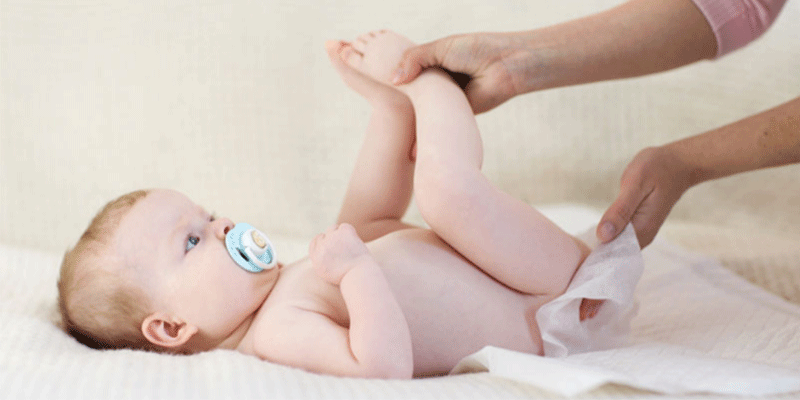
Urination
Your baby may urinate as often as every one to three hours or as infrequently as four to six times a day. If she’s ill or feverish, or when the weather is extremely hot, her usual output of urine may drop by half and still be normal. Urination should never be painful. If you notice any signs of distress while your infant is urinating, notify your pediatrician, as this could be a sign of infection or some other problem in the urinary tract.
In a healthy child, urine is light to dark yellow in color. (The darker the color, the more concentrated the urine; the urine will be more concentrated when your child is not drinking a lot of liquid.) Sometimes you’ll see a pink stain on the diaper that you may mistake for blood. In fact, this stain is usually a sign of highly concentrated urine, which has a pinkish color. As long as the baby is wetting at least four diapers a day, there probably is no cause for concern, but if the pinkish staining persists, consult your pediatrician.
The presence of actual blood in the urine or a bloody spot on the diaper is never normal, and your pediatrician should be notified. It may be due to nothing more serious than a small sore caused by diaper rash, but it also could be a sign of a more serious problem. If this bleeding is accompanied by other symptoms, such as abdominal pain or bleeding in other areas, seek medical attention for your baby immediately.
Bowel Movements
Beginning with the first day of life and lasting for a few days, your baby will have her first bowel movements, which are often referred to as meconium. This thick black or dark-green substance filled her intestines before birth, and once the meconium is passed, the stools will turn yellow-green.
If your baby is breastfed, her stools soon should resemble light mustard with seedlike particles. Until she starts to eat solid foods, the consistency of the stools may range from very soft to loose and runny. If she’s formula-fed, her stools usually will be tan or yellow in color. They will be firmer than in a baby who is breastfed, but no firmer than peanut butter.
Whether your baby is breastfed or bottle-fed, hard or very dry stools may be a sign that she is not getting enough fluid or that she is losing too much fluid due to illness, fever, or heat. Once she has started solids, hard stools might indicate that she’s eating too many constipating foods, such as cereal or cow’s milk, before her system can handle them. (Whole cow’s milk is not recommended for babies under twelve months.)
Last Updated 8/1/2009
Source Caring for Your Baby and Young Child: Birth to Age 5 (Copyright © 2009 American Academy of Pediatrics)
The information contained on this Web site should not be used as a substitute for the medical care and advice of your pediatrician. There may be variations in treatment that your pediatrician may recommend based on individual facts and circumstances.






